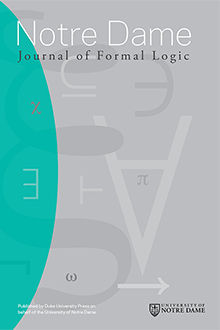Abstract
We characterize the modal logics of elementary classes of Kripke frames as precisely those modal logics that are axiomatized by modal axioms synthesized in a certain effective way from "quasi-positive" sentences of hybrid logic. These are pure positive hybrid sentences with arbitrary existential and relativized universal quantification over nominals. The proof has three steps. The first step is to use the known result that the modal logic of any elementary class of Kripke frames is also the modal logic of the closure of this class under disjoint unions, generated subframes, bounded morphic images, and ultraroots. This latter class can be defined by the first-order sentences of a special syntactic form (called pseudo-equations by Goldblatt) that are valid in the former class. The second step is to translate these pseudo-equations into equivalent quasi-positive hybrid sentences. In the third and main step, we show that any quasi-positive sentence S generates an infinite set of modal formulas called "approximants," which together axiomatize a canonical modal logic that is sound and complete for the class of frames validating S. The proof is analogous to standard proofs of Sahlqvist's theorem. It generalizes to sets of quasi-positive sentences. The main result now follows.
Citation
Ian Hodkinson. "Hybrid Formulas and Elementarily Generated Modal Logics." Notre Dame J. Formal Logic 47 (4) 443 - 478, 2006. https://doi.org/10.1305/ndjfl/1168352661
Information





